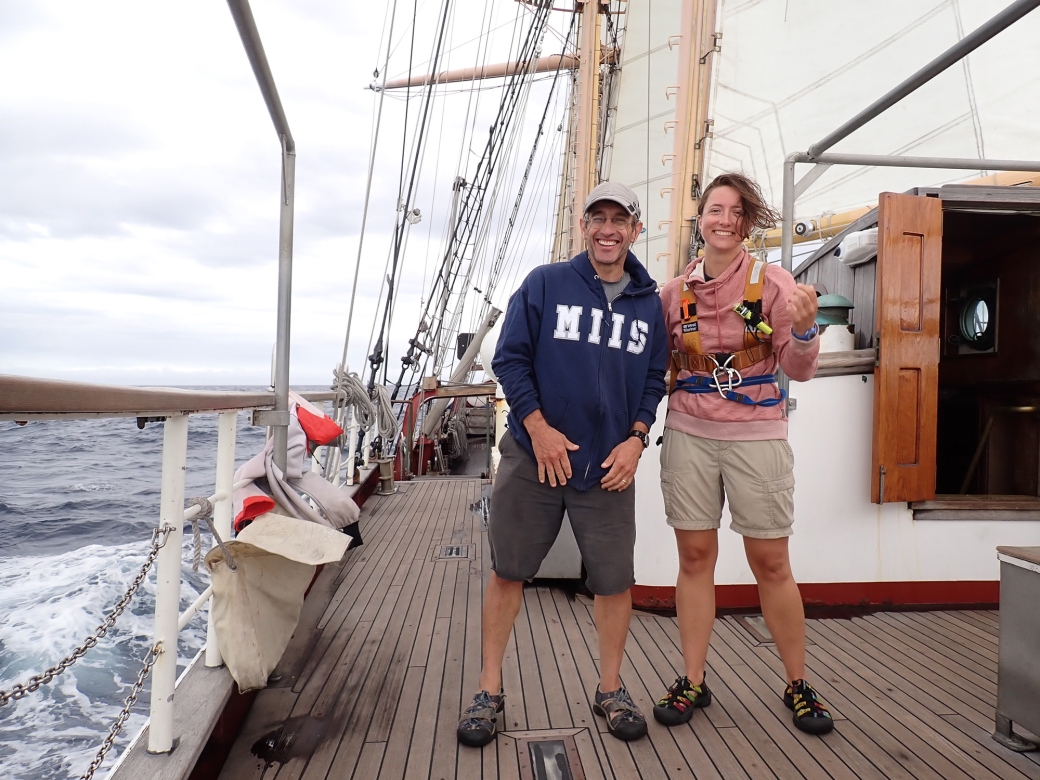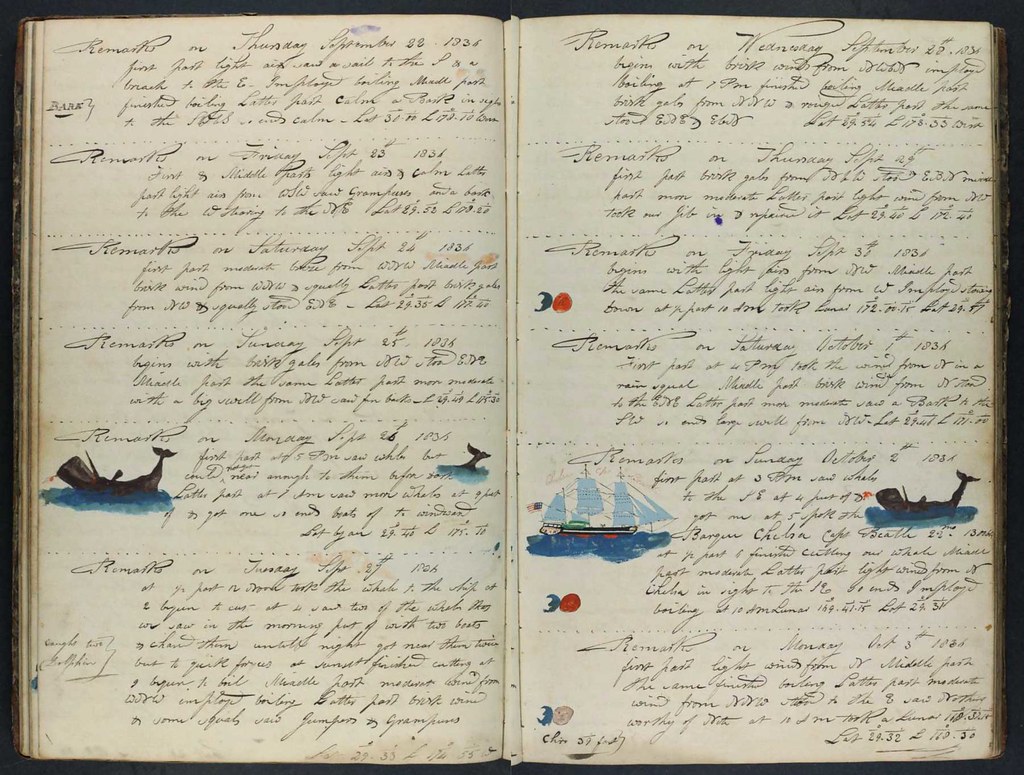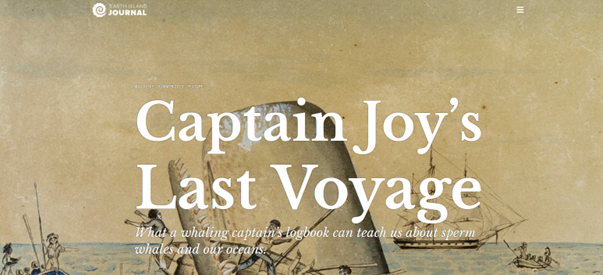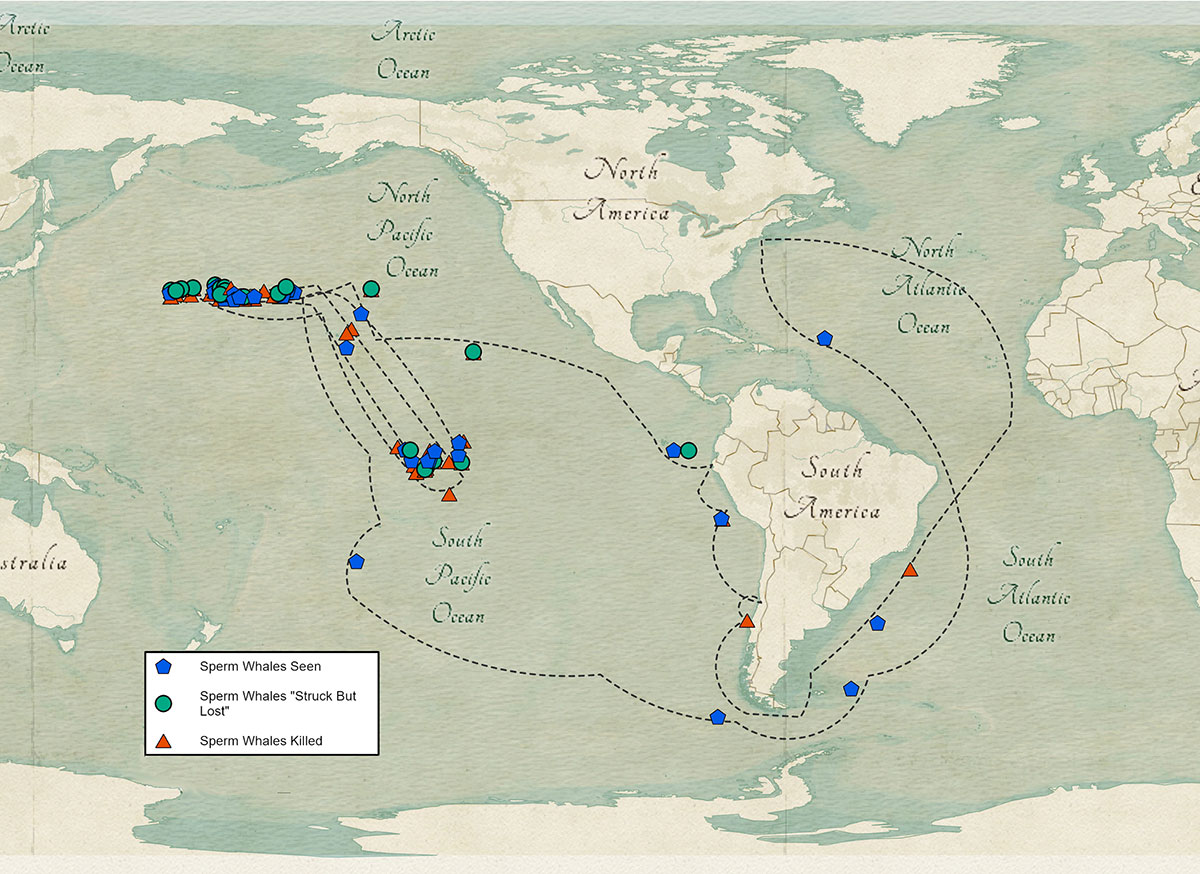Historic Logbooks & Adventures at Sea

The Middlebury Institute attracts amazing faculty and students, and affords amazing opportunities.
It started with a new class and a new faculty member. Richard J. King, accomplished author, illustrator, naturalist and seaman, who teaches regularly with the Sea Education Association (Woods Hole, MA) joined the faculty at the Middlebury Institute to teach a new class: Marine Environmental History.
The class project turned out to be a wealth of data for the scientific community and a great experience for the MIIS graduate and undergraduate students (of the California Coast Climate Semester) who transcribed the hand written logbook of Captain Robert M. Joy of the whaling vessel the Roman which set sail out of New Bedford, Massachusetts in 1835.

In the 1830s to 1850s, the height of whaling under sail, roughly 8,000 people, mostly young men, were out on the high seas each year searching for whales. This represented, as far as we know, the largest collective survey of the open ocean surface in the history of the human race — an intensity and style of observation that will likely never be replicated again.
Each whaling captain at that time would typically write a daily entry, and those entries describe the historic populations and distributions of the whale populations, as well as birds, turtles, and other marine life.
Capt. Joy’s logbook is unique in that he also illustrated many of his entries as he noted the diversity and abundance he and his crew witnessed over their three-years at sea.
However, transcribing the data and making it available to the larger scientific community is not something that can be tackled by A.I. The writing of the time is difficult to read. This was the project for Prof. King’s class, and it turned out to be rewarding in so many ways.

Captain Joy’s Last Voyage:
What a whaling captain’s logbook can teach us about sperm whales and our oceans.
Professor King, along with alumna Mallory Hoffbeck (IEP OCRM “23), current MA EPM student Karan Kumar, and undergraduate students in the spring 2023 California Climate Change Semester (Kripa Bansal, Finn Warner, Mia Hines, and Carter Myers-Brown) coauthored an article in the Earth Island Journal, “Captain Joy’s Last Voyage: What a whaling captain’s logbook can teach us about sperm whales and our oceans.” The project makes searchable the historic and detailed observations locked in this hand-written log over Cpt. Joy’s three year journey.
One of the students, Mia Hines, a Computer Science major at Grinnell College, devised software to place Capt. Joy’s observations on the map, a significant accomplishment and addition to the scientific data.

Additionally, Mia, Rich and Mallory were hosted on a podcast by KSQD radio to talk about the logbook project, and also the encore over this summer for Rich and Mallory—six weeks at sea on a sailing vessel that is dedicated collecting current scientific observations as part of the Sea Education Association.
